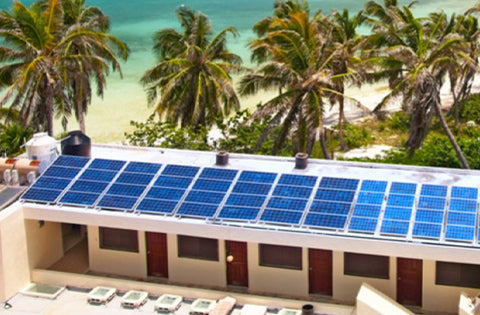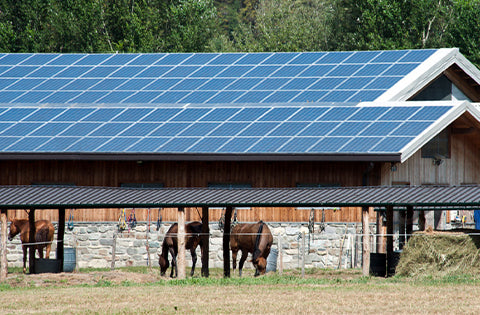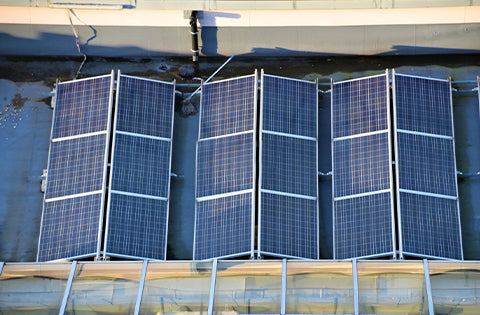As a solar panel and relevant solar products supplier, SOLARPARTS has heard many questions and feedback from the customers, from seasoned solar installers to homeowners exploring the possibility of going solar for the very first time. Naturally, there are some questions we receive on a daily basis. So for the sake of convenience, we decided to gather the answers to the most common questions we hear in one place. And the following are some common questions from customers and answers we provide:
1: Can I install solar myself?
Some customers choose to install their own system to save money on their project. Some install the racking rails and panels, then bring in an electrician for the final hookup. Others simply source the equipment from us and hire a local contractor to avoid paying markup to a national solar installer.
If you are interested in installing your own system, take a look at the DIY solar timeline to get an overview of the process, or join our free DIY solar workshop for in-depth training and guidance on your project. If you would like to hire someone to install for you, learn how to hire a solar installer you can trust.
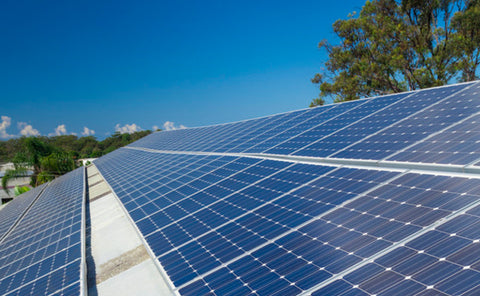
2: What is net metering?
Your utility’s net metering policy outlines the terms you agree to when you connect to the grid. It dictates the rates you are charged or credited for power bought from or sent into the grid. It also outlines terms like variable time-of-use rates. Understanding your net metering policy is key to figuring out what kind of return you can get from your investment into solar. Read more about how it works in our net metering guide.
3: How long will my system last?
Solar panels are warrantied for 25 years, so that should be your benchmark for system lifespan. However, you should expect to replace a few other parts along the way:
1: Grid-tie string inverters: 10-15 year warranty
2: Off-grid inverters: 5-10 year warranty
3: Batteries: 1-10 year warranty (varies widely depending on technology and model/manufacturer)
When looking at lifetime cost of ownership, be sure to account for scheduled part replacements along the way.
4: What financing options are available?
If you cannot buy your system outright, there are a few options to go solar with lower up-front cost:
Personal loan: A lender fronts the money for your system. You own the system and can claim any available incentives. You pay a monthly loan payment with interest to your lender.
Solar lease: A solar installer builds a system on your home. They own the system, so they claim any available incentives. You pay a monthly payment to the installer for the right to use all the power that the system generates.
Solar PPA (power purchasing agreement): Similar to a solar lease, except you pay for the power you use each month (at a rate slightly lower than utility power). The installer still owns the system and claims the incentives.
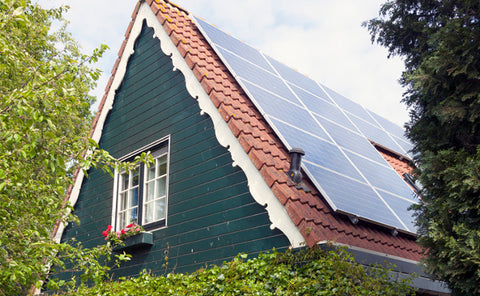
5: Does solar increase the value of my home?
Yes, studies have shown that solar homes sell for 3-5% more than comparable non-solar homes. A study showed that solar-equipped homes sold for $16,995 more on average. So if you want to go solar but aren’t sure whether you’ll stay in your house long enough for the system to pay itself off, you can rest assured that you can recoup most or all of your solar investment when you decide to list your home. You can read our blog to know more about solar investment.
The above are five common questions about solar energy from customers. Keep following with SOLARPARTS to learn more next time!
Twitter: Solarparts Instagram: Solarparts
Tumblr: Solarparts Pinterest: Solarparts
Facebook: Shenzhen Solarparts Inc
Email address: Philip@isolarparts.com
Homepage: www.isolarparts.com
